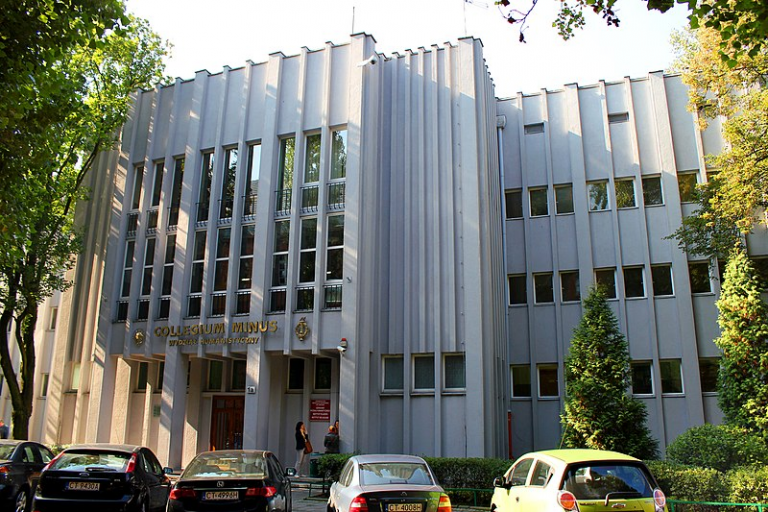This blog post is a shortened version of a Lectio Praecursoria delivered on 10.6.2022, Tampere.
Amid various social crises, whether recession, pandemic or war, we often ask: What is the role of business in a time of crisis? What is corporate responsibility in the face of social challenges? Can corporations as business actors be required to share the burden and the fundamental values of society?
Today we face formidable challenges, but what are the lessons to learn and lessons yet to learn from the 2008-2014 financial and economic crisis?
“The European Union and its economic system built to bring peace and prosperity to all Europeans suddenly seemed to contribute to many losing much of what they had.”
Let me begin with the mortgage crisis in the United States, which led to the collapse of major financial firms in 2007, sending a shock wave over the Atlantic to Europe. The financial not only revealed the interconnectedness of the global financial sector. It revealed the intertwining of the financial economy and the real economy.
The economic recession that followed caused many individual tragedies. The European Union and its economic system built to bring peace and prosperity to all Europeans suddenly seemed to contribute to many losing much of what they had. And to some, losing all they had.
It is fair to say that the burden of the economic crisis was not shared equally. The top level of the European Union recognised that ordinary taxpayers largely paid the costs of the crisis. In 2011, Lázló Andor, European Commissioner responsible for employment, social affairs and inclusion, stated, ”Values like solidarity, sustainability, inclusiveness and integrity are not always upheld by business, and I believe our economies have suffered as a result.”
“The deliberate strategy of non-regulation adopted had now backfired.”
The crisis was not just financial or economic. It was a crisis of legitimacy for business and, especially, a crisis of legitimacy for the European Union, which had corporations such freedom that could avoid sharing the burden – and do so legally. Nor were there efficient mechanisms in place to call to account financial institutions that had taken too many risks or to tackle aggressive tax planning and tax evasion.
In my research, European Constitution of Corporations: Legal Personhood, Legal Power & Legal Governance of Corporate Entities in the European Union, I studied the European Union’s response to the situation partially created by its regulatory failures. The deliberate strategy on non-regulation adopted had now backfired. In addition, I analysed whether and how the financial and economic crisis changed the regulatory environment for businesses and the impacts of the crisis management on the legal freedom, rights and duties of corporations.
I aimed to understand how and to what end corporate power is legally governed in the European Union. The objective was to identify the principles of corporate legal governance in the European Union, as well as the key variables that determine the legal powers and legal duties of corporations. While my research does not answer critical questions about what we should do with corporate social influence, it provides an overall picture of corporations as legal entities necessary for constructive discussion.
With the aid of theoretical and analytical tools that I’d modified for a more accurate representation of legal reality, I identified the fundamental liberties and rights corporations enjoy in the EU and the origins of their legal duties. I also formulated general principles describing the legal governance of corporate entities in the European Union, the first of which outlined the recognition of corporations as autonomous legal persons. Then I studied the impact of the EU’s response to the crisis on the legal powers and legal relations of corporate entities to derive some general conclusions.
The most important result of the research was that corporations as legal persons have legal personhood and legal powers because, ultimately, we expect them to contribute to society. Of course, in a modern liberal market economy, this contribution is somewhat vague. But it’s there, and it is realised through various mechanisms.
“…there are no principled or moral arguments against intervention in the legal liberties and rights enjoyed by corporate entities.”
The social function of a corporate entity is to do business. In the EU, corporations enjoy those legal powers and only those necessary to perform their social role.
I concluded that there are no principled or moral arguments against intervention in the legal liberties and rights enjoyed by corporate entities. But if, in principle, there’s nothing to stop it, then why are we not seeing more regulatory control over corporations?
We do not see more regulatory control because there are several pragmatic objections to imposing such regulatory burdens. These pragmatic objections originate from ideas and beliefs about the inner workings of the economic system embedded in the Treaty law.
These ideas have been formulated into binding but flexible legal principles, which are designed to respond to changes in economic variables, such as the level of competition, economic growth or employment. Therefore, I call these principles dynamic. They serve as bridges between economic reality and legal reality.
As a result of my analysis, I recognised that while there were significant changes in the legal powers of corporations during the crisis, these changes were neither paradigmatic nor radical. Moreover, they were not even irreversible. Indeed, the passing of the crisis brought about a de-regulatory trend, further highlighting the dynamic nature of Union law.
Nevertheless, the outcome is that the freedom of business is not a principle carved in stone. The European Union only requires that the social benefits outweigh the social costs, but these costs and benefits can be measured in terms of economic value, societal values or social integrity. And what has happened since has only validated this conclusion.
“….business is not above politics….”
The Covid-19 pandemic demonstrated that business is not immune to severe restrictions based on the protection of public health. Furthermore, the war in Ukraine has demonstrated that business is not above politics.
But what lessons have we learnt already? And what lessons have yet to be learnt from the financial and economic crisis? I would argue that the lesson learned is that irrespective of how it may sometimes seem, corporations are powerful actors because we, as a society, have knowingly granted corporations that power with the underlying expectation that they will do more good than harm.
The lesson yet to be learnt is what we as individuals and society should do with corporate power. Or should we do anything at all?
Legal governance of corporate powers for societal benefit requires clarity of thought, goodwill and clear objectives – things we may lack, especially in the face of a crisis. Critical questions for corporate legal governance are: What are our will, aims, and values? These questions cannot be answered with pure semantics or legal weighting. Instead, they require broader social deliberation about our values and our priorities.
While difficult decisions remain to be made, I believe my research clarifies the idea of what European corporations are. That, if any, is a good starting point for a more comprehensive discussion.
Siina Raskulla, PhD, University Instructor (Public Law)






Kommentit